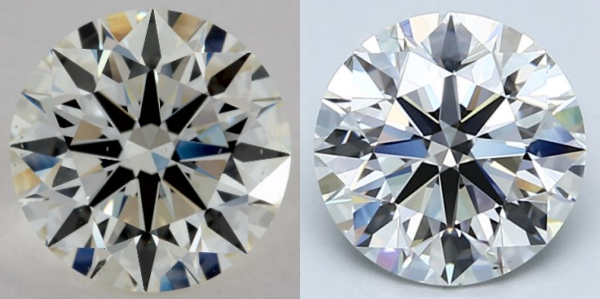When it comes to purchasing a diamond, the certification you choose is a significant factor in determining its quality and value. The two most recognized and respected certification organizations are IGI (International Gemological Institute) and GIA (Gemological Institute of America). How do you decide which certification is better for you? Let’s explore the key differences between these two gemological powerhouses to help you make an informed choice.
Table of Contents
What Is Diamond Certification?
Diamond certification is an official document that verifies the characteristics of a diamond, such as carat weight, color, clarity, and cut. These reports provide buyers with a detailed description of the diamond’s attributes, ensuring transparency and trust in the purchasing process. Certification is critical because it allows you to compare diamonds based on standardized criteria.
About IGI IGI, or the International Gemological Institute, was founded in 1975 and has a global presence with offices in major cities worldwide. IGI is known for its comprehensive grading reports and is often used by jewelry manufacturers and retailers. Its certifications cover diamonds, gemstones, and jewelry, making it a versatile choice for those in the market for a variety of jewelry products.
About GIA GIA, or the Gemological Institute of America, has a longer history, founded in 1931. It is considered the gold standard in diamond certification, with its grading reports often seen as the most reliable and consistent. GIA’s focus is primarily on diamonds, but it also certifies other gemstones. GIA is respected for its rigorous grading standards and strict quality control.
Comparing IGI and GIA
So, what sets IGI vs GIA apart? Let’s break it down into key factors:
- Reputation: GIA has a more established reputation for strict grading and consistency. It is often the choice for high-value diamonds and is widely recognized by gemologists and jewelers. IGI, while respected, is sometimes seen as slightly less stringent in its grading.
- Grading Standards: GIA is known for its strict grading standards, with less variance between reports. IGI is also reputable but may have slightly more lenient standards, leading to differences in grading between IGI and GIA for the same diamond.
- Cost: IGI certifications are typically more affordable than GIA. This factor makes IGI attractive to buyers looking for quality without the premium price tag of a GIA-certified diamond.
- Availability: Because IGI has a broader global presence, it might be easier to find IGI-certified diamonds in some regions. GIA, on the other hand, is more commonly associated with higher-end retailers and diamonds.
Which Certification Is Right for You?
Choosing between IGI vs GIA depends on your priorities and budget. If you want the most recognized certification with strict grading, GIA is the way to go. However, if you’re looking for a more affordable option with a reputable certification, IGI could be the better choice. It’s also worth considering the specific jewelry piece you intend to buy and the seller’s reputation.
Conclusion: Making the Right Choice
The choice between IGI vs GIA ultimately comes down to your personal preference and budget. If you’re investing in a high-value lab diamonds, GIA’s reputation might offer you greater peace of mind. However, if you’re purchasing a piece of jewelry where the certification’s reputation isn’t as critical, IGI provides a reliable and cost-effective alternative.
In the end IGI vs GIA, the most important factor is finding a diamond that brings you joy and fits your budget. No matter which certification you choose, ensure you’re buying from a reputable jeweler who can answer your questions and guide you through the process. Happy diamond hunting!




